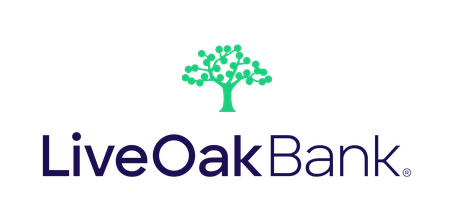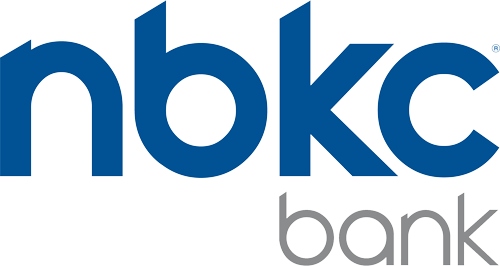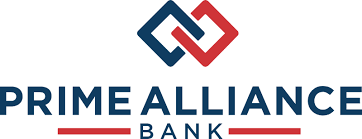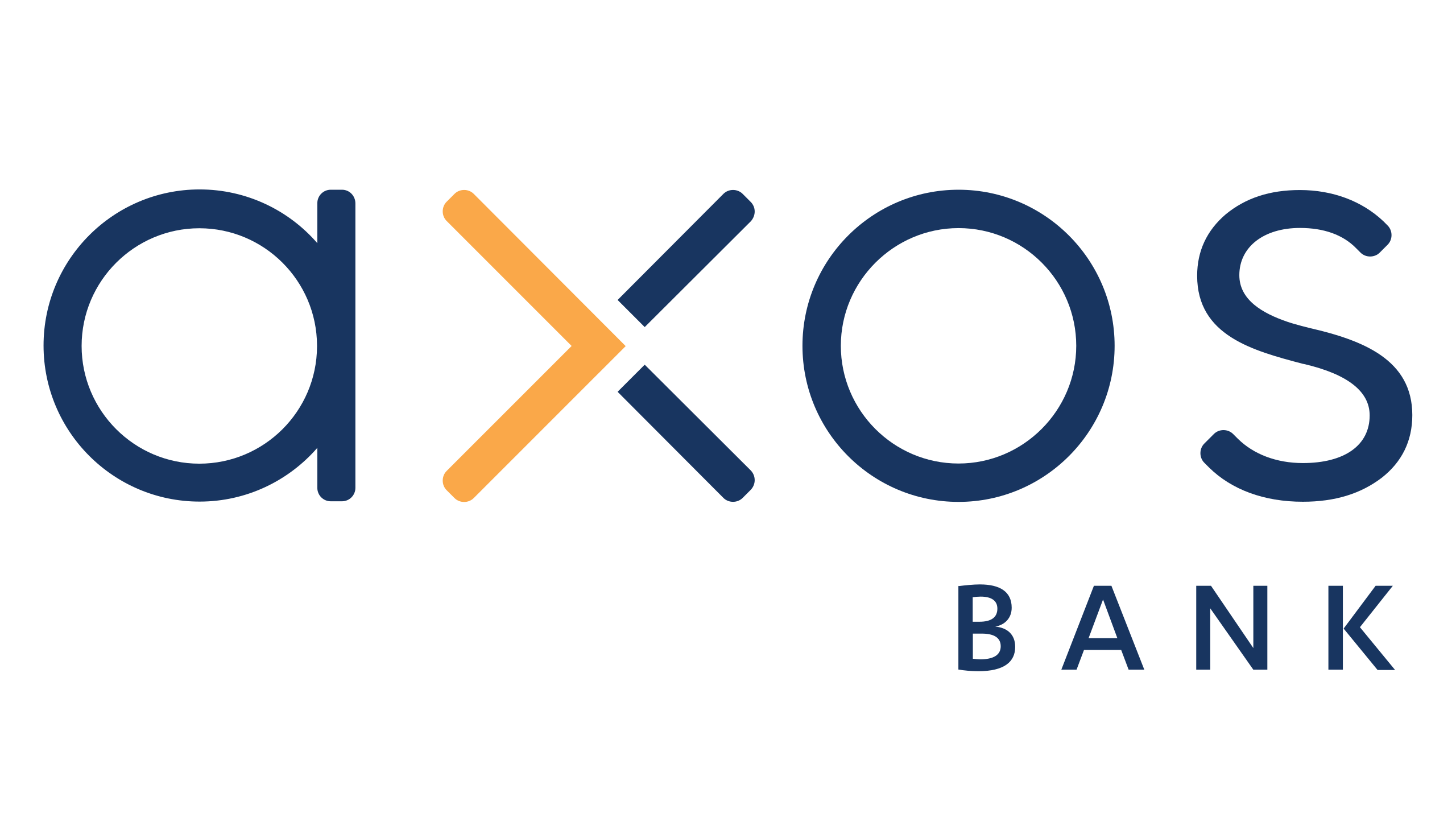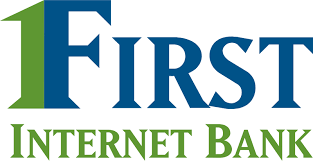What is a Business Savings Account for Small Business?
A business savings account is like a safe and secure piggy bank where you can keep and grow your company’s hard-earned money. It’s different from a personal savings account because it offers higher interest rates, which means your money can work harder for you. With a business savings account, you can easily access your funds whenever needed while earning interest on the balance.
Secure Place to Store and Grow Your Company’s Funds
One of the main benefits of having a business savings account is that it provides a secure place to store and grow your company’s funds. Instead of keeping all your money in a regular checking account, where spending it all may be tempting, having a separate savings account helps you set aside funds specifically for your business needs. It acts as a financial safety net, ensuring you have money available for emergencies or unexpected expenses.
Higher Interest Rates Compared to Personal Savings Accounts
Unlike personal savings accounts that offer minimal or no interest on the balance, business savings accounts tend to provide higher interest rates. This means that as long as you keep money in your savings account, it will grow over time through the power of compound interest. The more money you deposit into the account, the more interest you’ll earn. Many of these accounts offer an annual percentage yield (APY) between 2-5%.
Easy Access to Funds While Earning Interest
Having easy access to your funds is crucial for any small business owner. With a business savings account, you can withdraw or transfer money whenever needed without any hassle. However, unlike traditional checking accounts, where there are usually no withdrawal restrictions, savings accounts typically have certain limitations on how often you can withdraw funds without incurring fees. It’s important to understand these terms before opening an account.
Helps Separate Personal and Business Finances
Managing personal and business finances separately is essential for better financial management. Opening a dedicated business savings account creates clear boundaries between your personal and business funds. This separation not only simplifies accounting and bookkeeping but also helps you keep track of your business’s financial health more accurately. It allows you to monitor your business’s income, expenses, and savings more efficiently.
What’s the Difference between Business Savings vs. Money Market Accounts?
Business savings accounts and money market accounts are two types of savings products offered by financial institutions specifically designed for small businesses like yours. While both options allow you to earn interest on your deposits, there are some key differences between the two that you should be aware of before deciding.
Business Savings Account: Earning Interest while Keeping Funds Accessible
A business savings account is a basic savings account that enables small businesses to earn interest on their deposited funds while keeping them easily accessible. Here are some important details about business savings accounts:
- Interest Rates: Business savings accounts typically offer competitive interest rates, although they may not be as high as those offered by money market accounts.
- Accessibility: With a business savings account, you can easily deposit or withdraw funds whenever needed, ensuring quick access to your money.
- Minimum Balance: Some business savings accounts may require a minimum balance to open the account or avoid monthly maintenance fees. However, these requirements are generally lower compared to money market accounts.
- Limited Transactions: While you have easy access to your funds, keep in mind that there might be limitations on the number of transactions you can make per month without incurring additional fees.
A business savings account is ideal if you want a straightforward option for earning interest on your deposits while maintaining liquidity and accessibility for your business needs.
Business Money Market Account: Higher Interest Rates with Added Flexibility
On the other hand, a business money market account offers higher interest rates compared to regular savings accounts and may require a higher minimum balance. Here’s what you need to know about business money market accounts:
- Higher Interest Rates: Money market accounts often provide higher yields than traditional savings accounts, making them an attractive option for businesses looking to maximize their earnings.
- Minimum Balance Requirement: Money market accounts usually have higher minimum balance requirements than regular savings accounts. However, these requirements can vary depending on the financial institution.
- Check-Writing Capabilities: Unlike business savings accounts, money market accounts often have limited check-writing capabilities. This feature allows you to write a certain number of checks per month, providing more flexibility in managing your funds.
- Limited Transactions: Similar to business savings accounts, money market accounts may restrict the number of transactions you can make in a given period.
A business money market account is suitable for businesses that want higher interest rates than regular savings accounts and need additional flexibility in managing their funds.
Choosing the Right Option for Your Business
Consider your specific needs and priorities when deciding between a business savings account and a money market account. Here are some factors to consider:
- Liquidity Requirements: A business savings account may be the better choice if you anticipate needing frequent access to your funds without transaction limitations.
- Interest Earnings: If maximizing interest earnings is a priority for your small business, a money market account’s higher yields might be more appealing.
- Minimum Balance: Consider any minimum balance requirements associated with each type of account and ensure they align with your financial capabilities.
- Flexibility: Consider whether the limited check-writing capabilities offered by a money market account would benefit your day-to-day operations.
Remember that different financial institutions may offer varying terms and features for both types of accounts. It’s essential to compare options from different banks or credit unions to find the best fit for your small business’s unique needs.
What are the Best Business Savings Account options?
Here’s our list of the best savings and money market accounts for small businesses.
Live Oak Bank Business Savings Account
- APY: 4.00%
- Maintenance Fee: None
- Overdraft fees: $25
Live Oak Bank offers a range of business savings accounts tailored to meet the needs of small businesses. Their Business Premium Savings Account and Platinum Business Money Market Account provide convenient and flexible high-yield savings solutions.
A standout feature of Live Oak Bank’s business savings accounts is their online banking services, allowing small businesses to manage their savings and access funds anytime, anywhere. Live Oak Bank understands the importance of competitive interest rates and offers them on their business savings accounts.
There are several benefits to consider when choosing Live Oak Bank for your business savings account:
- Convenience: With online banking services, managing your savings becomes hassle-free. You can easily monitor your account balance, transfer funds between accounts, and even set up automatic transfers or payments.
- Flexibility: Live Oak Bank offers different types of business savings accounts to cater to the unique needs of various businesses.
- Competitive Interest Rates: As mentioned earlier, Live Oak Bank provides competitive interest rates on their business savings accounts.
- FDIC Insurance: All Live Oak Bank business savings accounts are FDIC-insured up to the maximum limit allowed by law. Knowing that your funds are protected provides an added layer of security and peace of mind.
Live Oak Bank Business Savings Account Pro & Cons
- Pros:
- Competitive interest rates.
- No monthly maintenance fee.
- Easy online account management.
- FDIC insured.
- No minimum balance requirement.
- Quick and convenient account opening process.
- Cons:
- No branch access (online-only bank).
- No physical locations to accept cash deposits or withdrawals.
- Limited customer support hours.
- Limited range of banking services compared to traditional banks.
- Limited accessibility for customers who prefer in-person banking experiences.
NBKC Bank’s Business Money Market Account
- APY: 2.50%
- Maintenance Fee: None
- Minimum Deposit: $0
NBKC Bank’s Business Money Market Account is a flexible and convenient solution for small businesses. It combines the benefits of a business checking account and a business savings account, allowing small business owners to manage their funds effectively.
The Platinum Business Money Market Account offers higher interest rates on deposits while providing easy access to funds. With this account, small businesses can enjoy the convenience of having both a checking and savings account in one.
Additionally, NBKC Bank’s Business Money Market Account provides easy access to funds whenever needed, ensuring quick access to cash flow. To further enhance convenience, NBKC Bank offers online banking services with their Business Money Market Account, allowing small business owners to manage and monitor their funds from anywhere at any time.
NBKC Bank’s Business Money Market Account Pros & Cons
- Pros:
- Competitive interest rates.
- No monthly maintenance fee.
- FDIC insured up to $250,000.
- Access to online banking and mobile app.
- Ability to write checks.
- No minimum balance requirement.
- Easy account opening process.
- Cons:
- Limited number of free transactions per month.
- Higher minimum deposit requirement compared to some other banks.
- Limited branch locations.
Prime Alliance Bank’s Business Money Market Account
- APY: 4.5%
- Maintenance Fee: None
- Minimum Balance for Max APY: $200,000.
Prime Alliance Bank understands the unique financial needs of small businesses. That’s why they offer a Business Money Market Account that provides a flexible and convenient way to manage business funds.
Whether you’re a startup or an established company, this account is designed to meet your specific requirements. With competitive interest rates and convenient online banking, small businesses can grow their savings and easily access and manage their funds.
The Business Money Market Account allows for quick withdrawals and transfers, ensuring that businesses have the necessary funds on hand when needed. Prime Alliance Bank also offers other business accounts, such as checking accounts and premium savings accounts, making financial management simple and efficient. As a trustworthy financial institution dedicated to serving the needs of small businesses, Prime Alliance Bank provides expert money management solutions that balance liquidity and growth potential.
Prime Alliance Bank’s Business Money Market Account Pros & Cons
- Pros:
- Competitive interest rates.
- Access to funds with limited check-writing ability.
- FDIC insured up to $250,000.
- No monthly maintenance fees.
- Online and mobile banking options for easy account management.
- Cons:
- Minimum balance requirements to avoid fees.
- Limited number of transactions per month.
- Higher minimum deposit to open the account.
- Limited availability of physical branches for in-person banking.
- Potential fees for excessive withdrawals or falling below minimum balance requirements.
Axos Bank’s Business Savings Account
- APY: 4.01%
- Maintenance Fee: None
- Overdraft fees: $25.
Axos Bank’s Business Premium Savings Account is tailored to meet the needs of small businesses. It offers competitive interest rates, allowing businesses to grow their savings over time. This particularly benefits small businesses looking to build up their financial reserves or save for future investments. Additionally, Axos Bank provides flexible terms that cater to the unique needs of businesses, offering both short-term and long-term savings options.
One of the key advantages of banking with Axos Bank is the convenience of their online banking services. With just a few clicks, businesses can access their accounts from anywhere at any time. This level of convenience eliminates the need to visit physical branches or adhere to specific banking hours. Furthermore, Axos Bank prioritizes the security of its customers’ funds by employing advanced encryption technology and multi-factor authentication protocols. This ensures that businesses have peace of mind knowing their money is safe and secure.
Axos Bank’s Business Savings Account Pros & Cons
- Pros:
- Competitive interest rates.
- No monthly maintenance fee.
- Easy online account management.
- FDIC insured up to $250,000.
- Ability to link to a business checking account.
- Cons:
- Limited branch access (primarily an online bank).
- Minimum balance requirement to earn interest.
- Limited options for depositing cash.
- Limited customer support hours.
- Limited additional features compared to other business savings accounts.
First Internet Bank’s Business Money Market Savings
- APY: 1.51%
- Maintenance Fee: $5 (options to waive the fee).
- Overdraft fees: $30
First Internet Bank’s Platinum Business Money Market Account is an excellent choice for small businesses seeking efficient money management and maximum savings. This account offers competitive interest rates, with a tiered structure that rewards higher balances.
Additionally, deposits in the account are FDIC-insured, ensuring the security of funds. The online platform of First Internet Bank is user-friendly and accessible, allowing businesses to navigate and manage their accounts easily.
With features such as easy transfers, online bill pay, detailed transaction history, and 24/7 account access, businesses can streamline their money management processes. This account is designed to help small businesses grow their savings while providing convenience and flexibility.
First Internet Bank’s Business Money Market Savings Pros & Cons
Pros:
- Competitive interest rates.
- FDIC insured up to $250,000.
- Convenient online banking platform.
- Access to mobile banking app.
- Ability to make unlimited deposits and withdrawals.
Cons:
- Minimum balance requirement to avoid a monthly fee.
- Limited branch locations for in-person banking services.
- May not offer as many additional business banking services compared to traditional banks.
- Limited customer support availability outside of regular business hours.
- Potential for fees for excessive transactions or falling below the minimum balance.
How do I choose the Right Business Savings Account?
There are a few key factors to consider. Let’s dive in and explore how you can make an informed decision that aligns with your financial goals.
Consider the Specific Needs of Your Small Business
First and foremost, consider your small business’s specific needs. Think about what you want to achieve with your savings account. Are you looking for a high yield on your funds? Do you need easy access to your money? Understanding these needs will help you narrow down the options and find the right fit.
Compare Different Types of Business Savings Accounts
Several types of business savings accounts are available in the market, each offering its own set of benefits. Here are three common types to consider:
- Traditional Savings Accounts: These are basic savings accounts banks and credit unions offer. They typically have lower interest rates but may come with fewer fees and minimum balance requirements.
- Premium Savings Accounts: These accounts often offer higher interest rates than traditional savings accounts, making them a good option if you’re looking for better returns on your deposited funds.
- Money Market Accounts: Money market accounts combine features of both checking and savings accounts. They typically offer higher interest rates than traditional savings accounts while still providing easy access to funds.
Take the time to compare these different types of business savings accounts based on their features, benefits, and potential drawbacks. This will help you identify which one aligns best with your financial goals.
Look for Favorable Terms and Conditions
As you evaluate different business savings account options, pay close attention to the terms and conditions associated with each account. Here are some factors to consider:
- Fees: Look for an account with low or no fees, such as monthly maintenance fees or transaction fees.
- Minimum Balance Requirements: Some accounts require a minimum balance to avoid monthly fees or to earn interest. Make sure the minimum balance requirement is feasible for your business.
- Access to Funds: Consider how easily you can access your funds when needed. Some accounts may have limitations on withdrawals or transfers, while others offer more flexibility.
By carefully reviewing the terms and conditions of each account, you can maximize your returns on deposited funds and avoid any unexpected fees or restrictions.
Seek Recommendations and Reviews
When choosing a business savings account, seeking recommendations from other small business owners or professionals in your industry is helpful. They may have insights or personal experiences that can guide you in deciding.
Reading online reviews and testimonials can provide valuable information about the reputation and customer satisfaction of different banks or financial institutions offering business savings accounts. Look for feedback on factors such as customer service, ease of use, and overall experience.
Consult with a Financial Advisor
If you’re still unsure which business savings account is right for your small business, consider consulting with a financial advisor. They can provide personalized guidance based on your specific financial situation and goals. A financial advisor can help you navigate the various options and make an informed decision that aligns with your long-term objectives.
Frequently Asked Questions
Here are the most common questions about small business savings accounts.
How do I open a Business Savings Account?
Opening a business savings account is important for small businesses to manage their finances effectively. But how exactly do you go about opening one? Let’s break it down into simple steps.
Gather Necessary Documents
Before applying for a business savings account, ensure you have all the necessary documents. These typically include:
- Identification (driver’s license or passport).
- Tax ID number (EIN).
- Proof of business registration.
Decide on the Method
You can choose to open your account in person at a bank or apply online. Opening in person lets you talk to a bank person who can help you. Applying for a business savings account online is easier and faster because you can do it anywhere with the internet.
Fill out the Application Forms
Once you’ve decided on the method, it’s time to fill out the required application forms provided by the bank. Accuracy and completeness are crucial here, so take your time and double-check all the information before submitting. Make sure to provide all requested details about your business, including its legal name, address, and contact information.
Make an Initial Deposit
Most banks require an initial deposit to activate your new business savings account. The amount of this required opening deposit varies depending on the financial institution and type of account you choose. Some banks may have no minimum opening deposit requirement, while others may require several hundred dollars or more. Be sure to check with your chosen bank for their specific requirements.
Understand Minimum Balance Requirements
In addition to the required opening deposit, many business savings accounts also come with minimum balance requirements that must be maintained to avoid fees or penalties. These requirements vary from bank to bank, so it’s essential to understand them before opening an account. Some accounts may have no minimum balance requirement, while others may require you to always maintain a certain amount in your account.
What are the benefits and drawbacks of Business Savings Accounts?
Consider the following information before opening a business savings account.
Benefits
A business savings account offers several advantages compared to personal savings accounts. One significant benefit is the higher interest rates it typically provides. This means your money can grow faster, earning more on your business funds and increasing your overall profits.
Another advantage of having a separate business savings account is the better organization and tracking it provides for your business funds. You can easily keep your personal and business finances separate. This makes it easier to manage your cash flow, monitor your business’s financial health, and track any tax-deductible expenses related to your business.
Additionally, business savings accounts may offer potential tax benefits for small businesses. Depending on your jurisdiction, the interest earned on your business savings account may be tax-free or subject to lower tax rates compared to other types of income. These tax benefits can help reduce your overall tax liability and provide additional financial advantages for your small business.
Drawbacks
However, it’s essential to consider the limitations of business savings accounts. Unlike business checking accounts, which offer more flexibility, they often restrict the number of monthly transactions. Excessive transactions may result in fees or penalties, so it’s crucial to be aware of these limitations.
Furthermore, many banks require a minimum balance to maintain a business savings account. Falling below this threshold may lead to potential fees. Understanding the specific terms and conditions set by your chosen bank is essential to avoid any unexpected charges.
Lastly, it’s important to note that a business savings account has lower liquidity than a business checking account. Accessing your funds may take longer, especially if you need immediate access to cover day-to-day business expenses. Therefore, it’s crucial to consider your liquidity needs before relying solely on a savings account as your primary source of funds.
Business Savings Account Pros & Cons
Here’s a quick summary of the benefits and drawbacks of business savings accounts.
Pros:
- Higher interest rates compared to regular savings accounts.
- Separate accounts for business funds, keeping personal and business finances separate.
- Easy access to funds for business expenses.
- Potential tax advantages.
- Ability to earn interest on idle funds.
Cons:
- Limited number of monthly transactions.
- Minimum balance requirements.
- Potential fees for falling below the minimum balance.
- Lower interest rates compared to other investment options.
- Not suitable for immediate cash needs.
Can I open a Business Savings Account if I’m a sole proprietor?
Yes! Even as a sole proprietor, you can open an account. It’s an excellent way to separate your personal finances from your business expenses and keep track of your earnings more efficiently.
What are the Alternatives to Business Savings Accounts?
Here are some alternative options to a business savings account.
Certificates of Deposit (CDs) for Long-Term Savings Goals
If you want to save money for your small business, you should consider getting a certificate of deposit (CD) instead of a regular savings account. CDs usually give you more interest, but you can’t take out your money right away. You have to leave it in the bank for a certain amount of time, like a few months or even years. But in exchange, the bank gives you a set interest rate that’s usually higher than what you’d get with a regular savings account.
Consider a Credit Union
Credit unions are a different choice for small businesses looking for the best savings accounts. They are like banks but owned by members and have reasonable rates and lower fees. They care more about helping their members than making money, so they give better benefits and save you money.
When you look for credit unions, think about things like how to join, how much money you need in your account, if there are any fees, and what services they have. That can often be the difference between choosing a bank or credit union.
Does having a Business Savings Account help with Small Business Loans?
A business savings account can significantly improve your chances of obtaining a small business loan. Lenders consider several factors when assessing a borrower’s creditworthiness, and one of these is the business’s financial stability. Having a business savings account demonstrates that your business has a solid financial foundation and can effectively manage its cash flow.
A business savings account shows lenders you have a disciplined approach to managing your business finances. It indicates that you can set aside funds for future expenses, emergencies, or growth opportunities. This gives lenders confidence in your ability to repay the loan and increases the likelihood of approval.
A business savings account can also provide you with collateral for the loan. Lenders may require collateral to secure the loan, and funds in a savings account can be used for this purpose. This reduces the lender‘s risk and makes them more inclined to approve your loan application.
The Best Business Savings Accounts for Small Business – Final Thoughts
You’ve now gained a comprehensive understanding of business savings accounts, and money market accounts for small businesses. Armed with this knowledge, you’re ready to make an informed decision to benefit your company’s financial growth.
Remember, finding the best business savings account is like finding the perfect fit for your favorite pair of shoes – it needs to be comfortable, reliable, and supportive. So take your time, compare the options we’ve discussed, and choose the account that aligns with your specific needs and goals.
Contact us if you have more questions about small business savings accounts or to apply for a small business loan. Our alternative funding experts can help you find the best financing options for your business goals.





